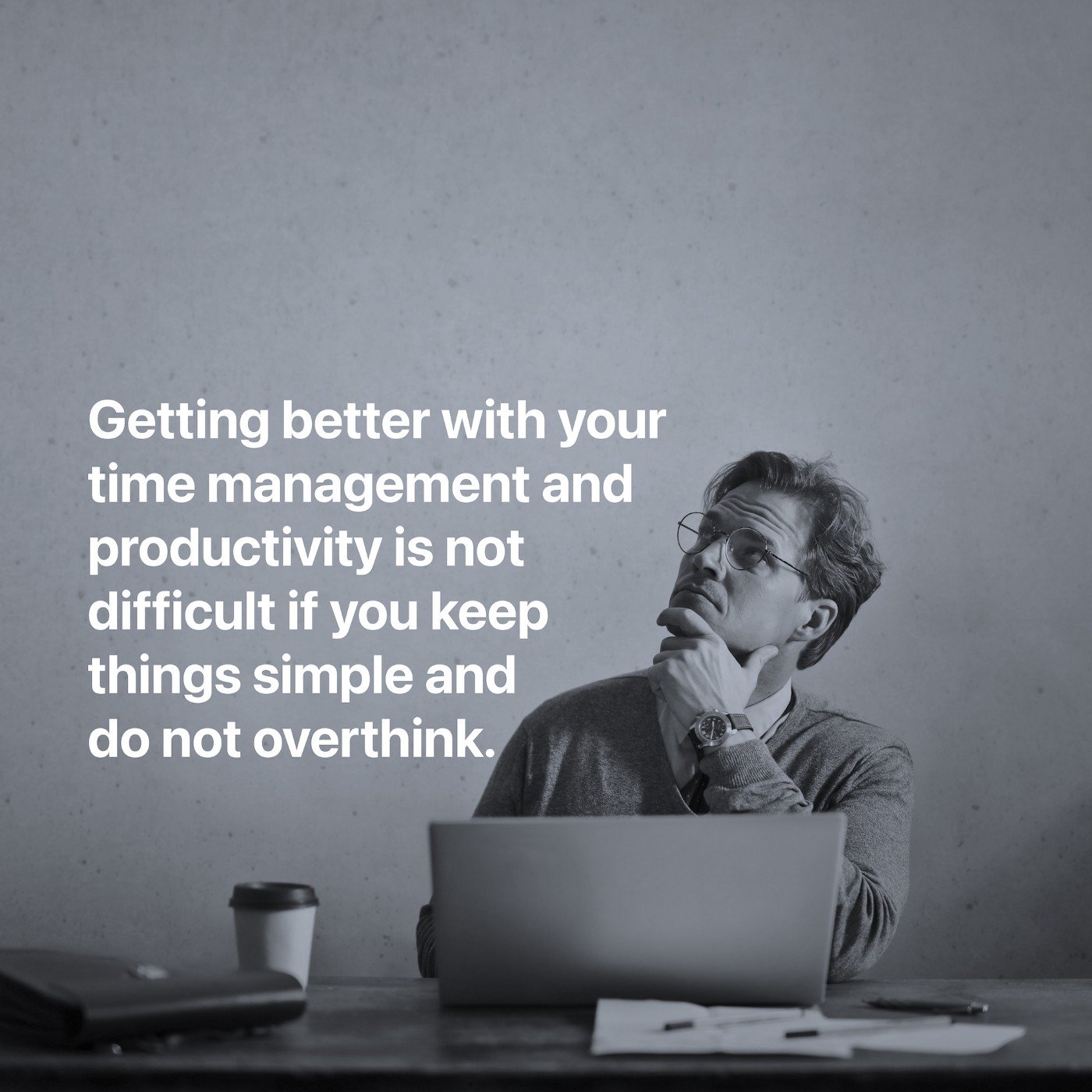Be Clear About What You Want To Accomplish Each Day.
Almost since I began my working life, I’ve worked in fields requiring me to be clear about what needs to be accomplished daily. From my time in hotel management to teaching, I’ve always needed to know what was happening in the day.
In hotel management, I had to know what functions were on — how many conferences, banquets, and other events were before I began my shift — so, as the duty manager, I could check everything was ready for when the guests arrived. While teaching English, I had to know what my classes were, when and where.
So, working for myself today, that “training” in my previous occupations has conditioned me always to be aware of what needs to be accomplished each day. From what content requires to be created to how many coaching calls I have. Without that knowledge, nothing would ever get done because I would be operating on a reactive level — waiting for emails or messages to tell me what to do.
Time dislikes a vacuum. If you have nothing planned, something will always fill up your time. Low-value emails will be elevated in importance; doing more “research” because you have not made it clear what needs to be done next and mindlessly scrolling through websites looking for inspiration.
If you spend most of the day “procrastinating”, look at your plan for the day. Either your plan will be a blank piece of paper (i.e. No plan), or your plan is trying to achieve the impossible — too many tasks, no clear outcome etc.
When we talk about having a plan for the day, it does not mean you need each minute of the day planned out. In today’s rapidly changing environments, that would be impossible, anyway. Instead, having a plan for the day means knowing what you want to accomplish. For instance, a paper you are writing needs finishing, a podcast requires editing or your kids need collecting from school.
Knowing what you want to accomplish each day before you start gives you focus. It also helps you avoid being caught up in procrastination because the battle against procrastination begins with knowing what you want to get out of the day.
However, you do need to avoid the temptation of overplanning. It’s tempting to plan to complete five or six things; the trouble is you won’t be consistent in completing these. Instead, commit to completing no more than three tasks each day. These three tasks need to be meaningful, not simple, easy, routine tasks. What are your objectives for this week? What have you committed to completing this week?
For example, if you commit to exercising four times this week. With that many exercise sessions, open your calendar and schedule the sessions. You could also commit to finalising the plans for your next project. This takes the pressure off you as your only focus needs to be on finishing the plan, not completing the project this week. Those actions can be committed to another week.
One of the advantages of minimising your task commitments to just two or three is you have the space to deal with the unexpected. Although you might be able to control your tasks to a degree, you will never be able to control outside events.
This does not mean you only do two or three things each day. You will always have your routine tasks, calls, and emails to respond to. You may not know how many of these you will have each day, but you know there will always be some communication tasks to deal with.
By committing to two or three meaningful tasks, you are forced to prioritise. Most people don’t prioritise; they just run around dealing with the latest, loudest tasks. The loudest tasks are more often the least important things. When you plan for the day, you have consciously decided what you will do. That conscious decision will have come from a deliberate review of your tasks and commitments. That’s a far better way to ensure the right things are getting done: It’s the essence of prioritising.
Getting better with your time management and productivity is not difficult if you keep things simple and do not overthink. When each day starts, make sure you know what two or three things you must do that day and when you will do them.
And that’s it. Focus on that; you will soon find yourself feeling much better about what you are getting done.
Thank you for reading my stories! 😊
If you would like to receive all the productivity and time management content I create each week in one convenient email, you can subscribe to my weekly newsletter here
You can also learn more about what I do here on my website
Finally, don’t forget to say hello on Twitter, YouTube or Facebook

